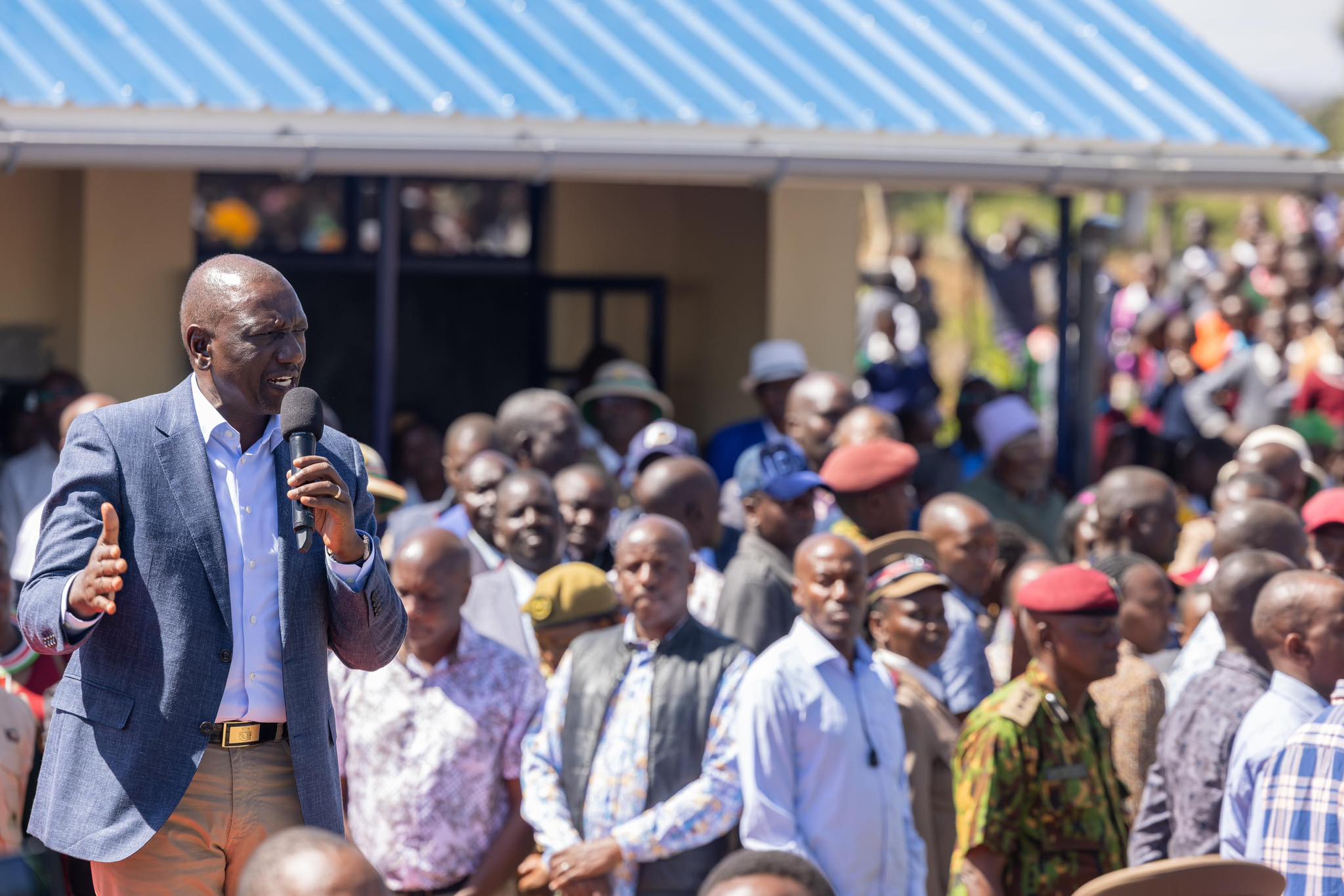The Government through the Ministry of Agriculture and Livestock has developed robust measures through a recently developed policy which will ease access to fertilizer to all farmers in a bid to improve crop yield and solve the challenges farmers faced in the past.
Through its Agricultural Soil Management Policy 2023, prepared by the State Department for Crop Development, the Government has identified various challenges faced by vulnerable farmers and recommended various policy interventions to increase access to fertilizer.
In the new policy, the State will support private sector investment in fertilizer production and storage and implement mechanisms to ensure accessibility, availability and affordability of the right type of fertilizers by the vast majority of smallholders.
Taita Taveta farmers asked to register for subsidized fertilizers
The policy also recommends that the Government to support further exploration and geological work to establish the availability of the critical raw materials for fertilizer manufacturing in the country, and support research on fertilizer production to guide the manufacturing and importation of the right type of fertilizers for the different soil conditions in the country.
It further recommends there should be improvement on infrastructure to reduce transportation costs for fertilizers, and ensure fertilizers are sourced and procured through incentives including but not limited to zero-rating, credit and subsidy provisions.
The recommendations will solve high transportation costs leading to high prices of fertilizers, and also poorly distributed centres making accessibility difficult.
Other difficulties are inadequate raw materials for local manufactures, limited range and untimely availability of fertilizer types, inadequate availability of soils laboratories for testing the quality of organic and inorganic fertilizers coupled with inadequate enforcement mechanisms for biological and organic fertilizers as a result of unclear mandates of various state agencies.
There is also lack of structures for sustainability of the fertilizer subsidy program, inadequate bulk fertilizer storage facilities, and unfavorable terms of trade between farm inputs and outputs, limited data and information to guide on site specific fertilizer recommendations, and weak enforcement of existing legislations.
In this regard, the policy has further tasked County Governments with responsibilities of promoting efficient distribution and timely access to fertilizers in partnership with the private sector, and support provision of high quality and affordable fertilizers inputs for use along crops commodity value chains.
They have further been tasked with responsibilities to promote regular fertilizer testing in liaison with researchers, extension staff and farmers; strengthen inputs and equipment surveillance mechanisms to ensure compliance with set standards, and also promote manufacturing of soil specific blended fertilizers and provide appropriate incentives to attract investors.
The Policy comes after President William Ruto during his state of the nation address in November last year pointed out that the move to subsidise the cost of fertilization was a masterstroke in the plan to lower the cost of living noting it has reduced from the previous KSh6, 500 to now KSh2, 500 per bag; which has also seen the maize production in the country go up by 200,000 per acre in 2023 with 18 million additional bags of maize believed to be harvested last year.

Speaking when he officially opened the Sensitization Workshop on the Fertilizer Subsidy Programme (FSP) held at the Kenya School of Government (KSG) in January, Deputy President Hon. Rigathi Gachagua said that the Kenya Kwanza Government is determined to bring down the cost of living adding that the Government is working round the clock to lower the cost of food especially the Maize Flour which is widely consumed.
He reiterated that the Government strategy to register farmers nationwide was a noble idea adding that the FSP should be fast tracked so that the farmers can use it in the coming long rainy season.
“Affordable cost of food will lead to peace and good governance will be seamless. No leader in the world wants to lead hungry people,” said the DP, who mentioned that the FSP will be digitally managed.
According to Gachagua, this will be executed through issuance of E- Vouchers, and use of other technologies to ensure that there is traceability, which will also help to block crafty individuals from depriving the farmers through diversion.
The Government introduced the subsidized fertilizer in 2008 mainly to stabilize its prices which had become unaffordable to most of the farmers. The price of the subsidized fertilizer stands at Ksh1, 800 and Ksh1, 500 for planting- Diammonium phosphate (DAP) and top dressing-Calcium Ammonium Nitrate (CAN)-fertilizers respectively.
The subsidized fertilizer amounts to 30 per cent of the total annual national demand of 500,000 metric tons, while the private sector meets the rest. However, the subsidized fertilizers were only obtained through the National Cereals and Produce Board, forcing farmers to travel significant distances to access the commodity.
By Roy Hezron
Get more stories from our website: Sacco Review.
For comments and clarifications, write to: Saccoreview@
Kindly follow us via our social media pages on Facebook: Sacco Review Newspaper for timely updates
Stay ahead of the pack! Grab the latest Sacco Review newspaper!



